We are delighted to invite you to the 1st Latin American Powder Diffraction Conference (LAPDiC), scheduled for October 13-14 in Fortaleza, Brazil. This specialized gathering will serve as a satellite event to the LACA-ABCr 2025 meeting.
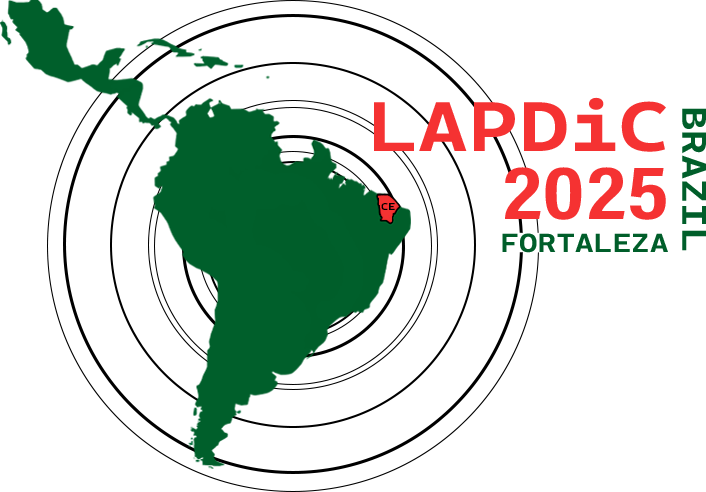
The Local Organizing Committee and the LAPDiC International Advisory Board are crafting an exciting program for LAPDiC 2025, covering the latest advancements in crystallography and related sciences. The program is designed to appeal to both emerging and established scientists and representatives from instrumentation companies and technical providers.
The program will feature 5 microsymposia, 5 keynote speakers, and 4 plenary lectures. It will encompass a wide range of traditional and innovative topics of interest to the powder diffraction community. These topics will include materials science, pharmaceuticals, novel methodologies, data analysis, pair distribution function, machine learning, and instrumentation development.
We encourage you to explore the program and submit your abstract for oral or poster presentations. This will allow you to share your scientific and technical findings with colleagues and engage with key figures in the field.
LAPDiC 2025 will be a vibrant two-day scientific conference, offering numerous learning opportunities across all facets of powder crystallography, complemented by commercial exhibitions featuring the latest in scientific instrumentation and software solutions.
Additional events will include a two-day pair distribution function (PDF) analysis school, specialized user meetings, a hands-on workshop (ICDD), and a dynamic social program. These activities will provide scientists from Latin America and beyond with ample opportunities to meet, connect, and exchange ideas – all set against the stunning coastal landscape of Fortaleza, a city known for its breathtaking beaches, vibrant culture, and welcoming atmosphere.
We hope everyone will enjoy a stimulating scientific program and a pleasant stay. We welcome you to Fortaleza, CE, Brazil, for the first Latin American Powder Diffraction Conference.
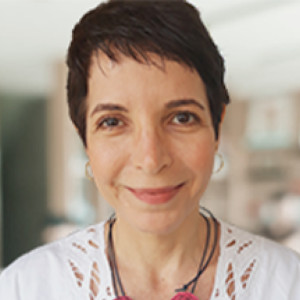
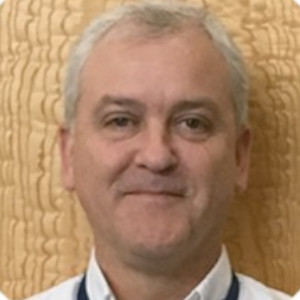
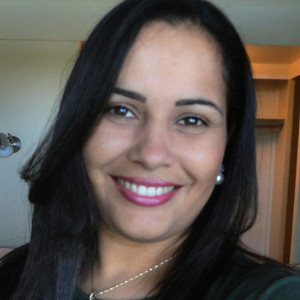
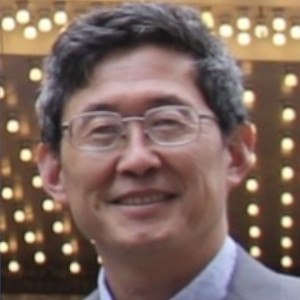
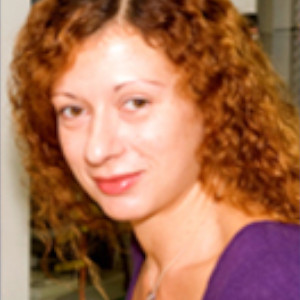
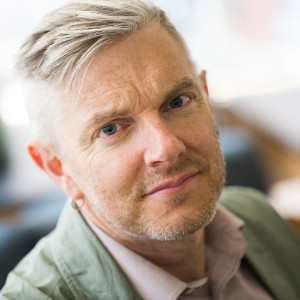
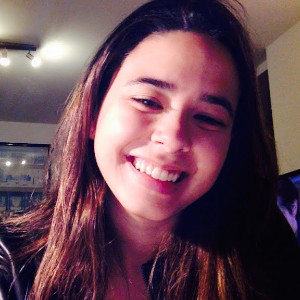
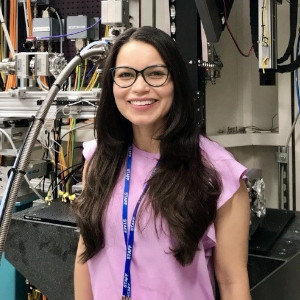
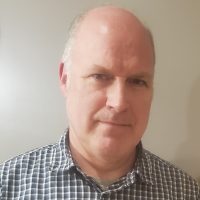
The high brilliance and tunability of synchrotron X-rays have revolutionized powder diffraction. This microsymposium will showcase advances in synchrotron-based XRPD, including in situ and in operando studies, high-pressure and high-temperature experiments, and microdiffraction techniques. Discussions on beamline development, data quality, and new scientific frontiers will also be included.
Chair 1: Flávia Estrada
e-mail: [email protected]
Chair 2: Diego Lamas
e-mail: [email protected]
Total scattering methods, including pair distribution function (PDF) analysis, have become essential tools for probing local and long-range order in crystalline and amorphous materials. This microsymposium invites discussions on cutting-edge techniques, instrumentation, and software for total scattering studies. Applications to complex materials, such as glasses, nanomaterials, and disordered systems, will also be highlighted.
Chair 1: Vinícius Bezzon
e-mail: [email protected]
Chair 2: Leandro Bufaiçal
e-mail: [email protected]
The characterization of multi-phase systems is critical in catalysis, cement, and metallurgy fields. This microsymposium will address recent developments in phase identification and quantitative phase analysis using XRPD. Topics include advancements in peak deconvolution, the application of whole-pattern methods, and integrating diffraction with other characterization techniques.
Chair 1: Graciela Delgado
e-mail: [email protected]
Chair 2: Lauro Bucio
e-mail: [email protected]
This open session invites contributions spanning all aspects of powder diffraction (X-ray, neutron, and electron), providing a platform for diverse and interdisciplinary topics. From instrument development to unconventional applications of Powder Diffraction, this microsymposium offers a forum to share novel methodologies, experimental results, and theoretical insights.
Chair 1: Leopoldo Suescun
e-mail: [email protected]
Chair 2: Mario Lopez
e-mail: [email protected]
Advances in powder diffraction (PD) have enabled the determination and refinement of increasingly complex crystal structures. This session focuses on innovative methodologies for structure determination, including ab initio techniques, Rietveld refinement, and complementary computational tools. Case studies showcasing applications in pharmaceuticals, energy materials, and functional crystals are encouraged.
Chair 1: Miguel Delgado
e-mail: [email protected]
Chair 2: Eduardo Granado
e-mail: [email protected]
Plenary lectures

Prof. Simon Billinge
Columbia University, New York, NY, USA
Simon Billinge earned his PhD in Materials Science and Engineering from the University of Pennsylvania in 1992, after completing a BA at Oxford University. He spent two years as a post-doc at Los Alamos National Laboratory in New Mexico before joining the faculty as an Assistant Professor in the Department of Physics and Astronomy at Michigan State University in 1994. He became an Associate Professor in 1999 and a full Professor in 2003. In 2008, he took on his current role as Professor of Applied Physics, Applied Mathematics, and Materials Science at Columbia University, while also serving as a Physicist at Brookhaven National Laboratory.
His research focuses on studying the relationships between local structure and properties of disordered crystals and nanocrystals using advanced X-ray and neutron diffraction techniques. In particular, he leads the development of the atomic pair distribution function (PDF) method applied to complex materials. These methods are used to investigate nanoscale structure and its influence on the properties of various materials of interest, such as energy, catalysis, environmental remediation, and pharmaceuticals. The approach employs advanced X-ray, neutron, and electron scattering techniques, leveraging some of the world's most powerful sources, and incorporating advanced computation and analysis methods, including artificial intelligence, machine learning, and graph-theoretic techniques. A major focus is on the nanostructure inverse problem (NIP), which aims to derive the 3D arrangement of atoms from nanoscale atomic structures using scattering data, as well as the synthesis inverse problem, which seeks to identify an unknown synthesis recipe based on a desired material product. These are complex ill-posed inverse problems that demand innovative applied mathematics and computational strategies to solve.
Prof. Billinge has published over 300 papers in scholarly journals. He is a fellow of the American Physical Society and the Neutron Scattering Society of America, a former Fulbright and Sloan fellow, and has received several awards, including being honored in 2011 for contributions to the nation as an immigrant by the Carnegie Corporation of New York, the 2020 Distinguished Powder Diffraction Prize from the European Powder Diffraction Conference, the 2018 Warren Award from the American Crystallographic Association, the 2010 J. D. Hanawalt Award from the International Center for Diffraction Data, the University Distinguished Faculty Award at Michigan State, and the Thomas H. Osgood Undergraduate Teaching Award. He serves as Section Editor of Acta Crystallographica Section A: Advances and Foundations. He regularly chairs and participates in reviews of major facilities and federally funded programs.

Prof. Irene Margiolaki
University of Patras, Patras, Greece
Irene Margiolaki is currently employed as a Professor in the Department of Biology at the University of Patras (UPAT, Patras, Greece). She graduated in Physics in 1999 from the University of Crete in Heraklion, Greece. Her D.Phil. thesis on “Structural, Magnetic and Dynamic properties of fullerene-based materials” was completed in 2004 in the Department of Physics, Chemistry and Environmental Sciences at the University of Sussex, UK (official date of graduation: 20 February 2004). From 2003 to 2010, she was employed first as a postdoctoral fellow and later as an instrument scientist at the European Synchrotron Radiation Facility (ESRF) in Grenoble, France. An important part of her research at the ID31 High Resolution Powder Diffraction beamline of the ESRF (2003-2010) and her future research activities involve the development of innovative powder diffraction methods for the structural characterization of biological macromolecules, particularly when data-quality single crystals for X-ray crystallography cannot be obtained. Since 2010, she has led a 15-member research team. In 2013, she inaugurated a Biochemistry, Structural Biology, and X-ray Crystallography laboratory in the Department of Biology, which is equipped with two modern diffractometers for single crystal and powder diffraction measurements. In 2015, she established a laboratory for protein expression, purification, and crystallization in the same Department. Her work to date has been recognized by internationally distinguished organizations.

Prof. Yang Ren
City University of Hong Kong, Hong Kong
Yang Ren is Chair Professor and Head of the Department of Physics at City University of Hong Kong (CityUHK), a Hong Kong Global STEM Professor, and the Director of the Hong Kong JC STEM Lab in Energy and Materials Physics. Before joining CityUHK in 2021, he was a Senior Physicist at Argonne National Laboratory and a lead beamline scientist at the Advanced Photon Source. He has received the Hong Kong Global STEM Professorship, the Argonne National Laboratory Board of Governors’ Distinguished Performance Award, and the Gopal K. Shenoy Excellence in Beamline Science Award from the Advanced Photon Source. He earned his M.S. in condensed matter physics from the Institute of Physics at the Chinese Academy of Sciences, and his Ph.D. in chemical physics from the University of Groningen in The Netherlands. His research interests focus on structure-property studies of materials through synchrotron X-ray and neutron scattering, as well as other techniques. His research activities include investigating phase transitions, correlated electron systems, engineered materials, nanoparticles and nanocomposites, and energy storage and conversion materials. He has published over 1,000 peer-reviewed articles in journals such as Nature, Science, PRL, and other prestigious publications. His Google H-index is 130, with over 64,000 citations. He is recognized as a Clarivate High-Cited Researcher.
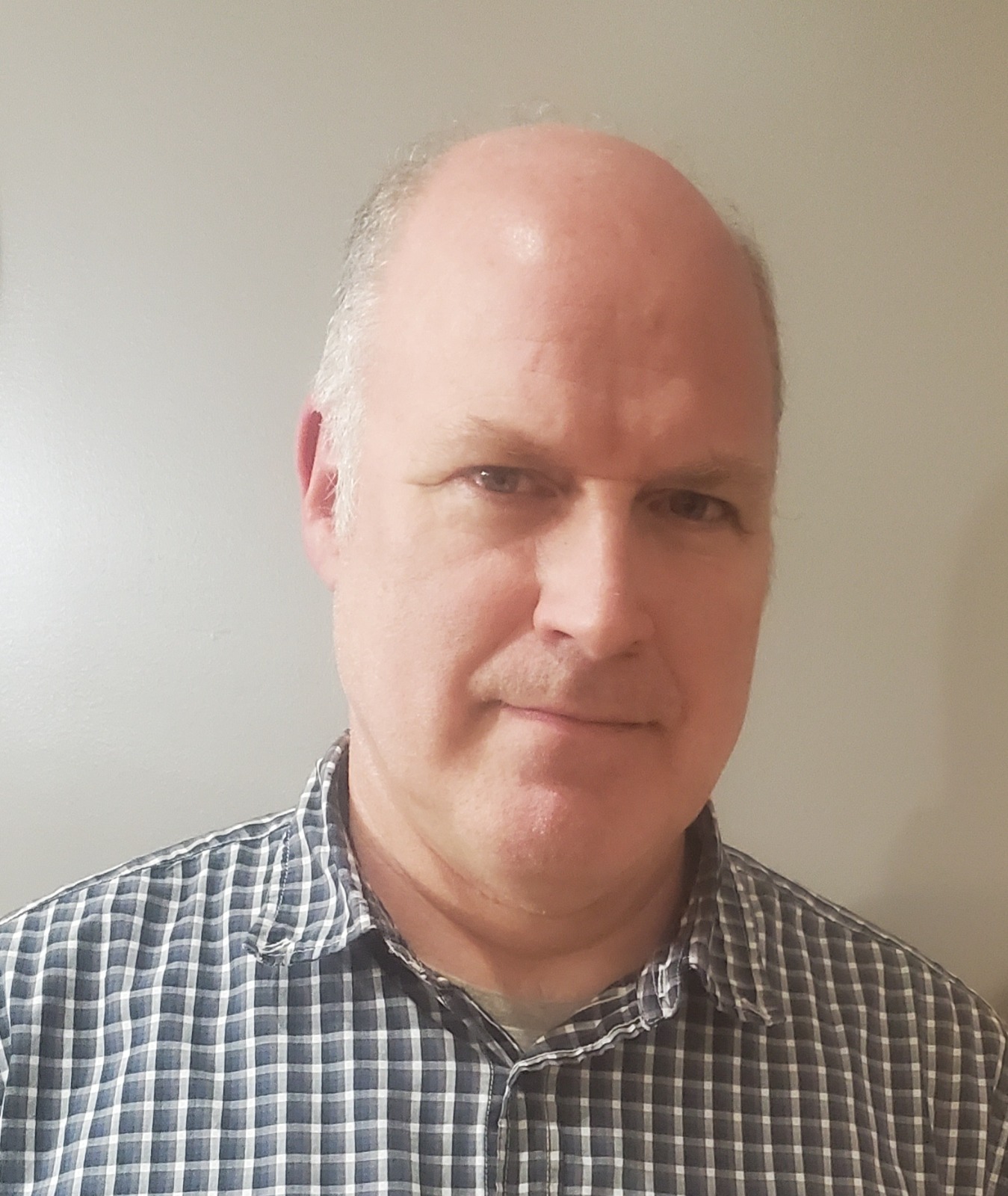
Stefan Kycia
University of Guelph, Canada
Stefan Kycia earned his PhD in Condensed Matter Physics from Iowa State University in Ames in 1995, where he studied under Alan Goldman. Prior to that, he completed a Master of Science at the University of Pennsylvania and a Bachelor of Science in Honours Physics at McGill University in Montreal, Canada. Following his doctoral studies, Kycia joined the Cornell High Energy Synchrotron Source (CHESS), initially as a postdoctoral researcher under Boris Batterman and later as a senior staff scientist. In 1999, he moved to the Laboratório Nacional de Luz Síncrotron in Brazil, where he worked until 2003 as a staff researcher overseeing the diffraction beamlines. During his tenure, he contributed to the design and development of the XRD1, XRD2, and XPD beamlines. Kycia was subsequently appointed Assistant Professor of Physics at the University of Guelph in Ontario, Canada. There, he led a major collaboration focused on the design and implementation of the Brockhouse Sector for x-ray diffraction and scattering at the Canadian Light Source in Saskatoon, Saskatchewan. He currently serves as a Full Professor and Chair of the Department of Physics at the University of Guelph, as well as the Beamteam Leader for the Brockhouse Sector. In 2021, Kycia revitalized the Canadian Institute of Synchrotron Radiation (CISR) and now serves as its president. CISR’s mission includes advocating for upgrades to the Canadian Light Source, advancing plans for a next-generation synchrotron, and promoting international collaboration opportunities for Canadian researchers. His research spans a wide array of condensed matter and materials science topics, including quasicrystals, fullerenes, semiconductors, nanomaterials, thin films, graphene, catalysts, and quantum materials. He employs a diverse set of experimental techniques such as dynamical diffraction, surface diffraction, anomalous scattering, multiple-beam diffraction, powder diffraction, and pair distribution function analysis. His team continues to innovate in synchrotron instrumentation and e
Keynote speakers

Dr. Cristiane Rodella
Sirius/CNPEM, Campinas, SP, Brazil
Cristiane Rodella holds a degree in Physics from the University of São Paulo (1994), a Master's degree in Physics from the University of São Paulo (1997), a PhD in Materials Science and Engineering from the University of São Paulo (2001), and two postdoctoral internships in Inorganic Chemistry at UNICAMP. Since 2005, she has worked at the National Synchrotron Light Laboratory (LNLS-CNPEM), where she initially participated in scientific projects of industrial interest and helped assemble infrastructure for conducting in-situ experiments at the beamlines. Since the end of 2012, she has been a researcher and coordinates the LNLS polycrystal X-ray diffraction experimental station. She conducts research in heterogeneous catalysis and materials for energy storage, focusing on the characterization of structure-functionality in in-situ experiments that utilize synchrotron light techniques. Additionally, she leads the Paineira Group at Sirius and oversees the construction of the Paineira line, which will perform X-ray diffraction experiments on polycrystalline materials. She develops instrumentation for in-situ experiments and manages analyses at Paineira.

Dr. Thomas Blanton
International Centre for Diffraction Data Newtown Square, Pennsylvania, USA
Tom is the Executive Director and Principal Scientist at ICDD. ICDD provides the Powder Diffraction File™ (PDF®) databases and JADE® analysis software utilized by the international diffraction community for materials characterization. Before joining ICDD he was a Senior Principal Scientist at Eastman Kodak Company where he worked in industrial applications of X-ray diffraction and X-ray fluorescence analysis. His area of focus was utilization of analytical chemistry techniques for microstructure characterization resulting in new materials for intellectual property and product development. Tom has authored/coauthored 3000+ publications including 6 book chapters, 46 U.S. Patents and 60 international patents.

Dr. Verônica Teixeira
Sirius/CNPEM, Campinas, SP, Brazil
Verônica C. Teixeira is a researcher at the Carnaúba group (Coherent X-ray Nanoprobe Beamline) of the Brazilian Synchrotron Light Laboratory (Sirius-LNLS), which is part of the Brazilian Center for Research in Energy and Materials (CNPEM), and a visiting researcher at the State University of Campinas (Unicamp). She holds degrees in Medical Physics (2008) and Physics (2012), as well as a Master's degree (2010) and a PhD (2014) in Materials Science and Engineering from the Federal University of Sergipe, the latter including a sandwich period at the Canadian Light Source (CLS, Canada). Her main research interests lie in the field of optical and spectroscopic properties of condensed matter and the utilization of synchrotron light in the study of luminescent nanomaterials. She has experience in X-ray absorption spectroscopy (XAS), vacuum ultraviolet spectroscopy (VUV), X-ray excited optical luminescence (XEOL), and scientific instrumentation. She has also researched new materials for energy storage, such as hybrid and inorganic perovskites and 2D lamellar materials, in addition to applying advanced techniques based on synchrotron light in the examination of natural and cultural heritage assets. With a specialization in Didactics and Methodology of Higher Education from Faculdade São Luís de França (2011), her activities encompass teaching and scientific dissemination. Between 2023 and 2024, she served as a member of the Deliberative and Advisory Council (CONI) of Ilum - School of Sciences; she coordinated events aimed at scientific dissemination and training, such as the PBV Summer Scholarship Program (2023) and the Sirius School for High School Teachers ESPEM (2022-2024), both offered by CNPEM, the latter in collaboration with the Brazilian Society of Physics (SBF). She also served as a visiting professor at the École Normale Supérieure of the Université Paris-Saclay (ENS Paris-Saclay, France, 2024). Additionally, in 2023, she received the "For Women in Science" Award in the "Physical Sciences" category, granted by L'Oréal Brazil/UNESCO/Brazilian Academy of Sciences (ABC), for her research on scintillating materials applied to the medical field.

Dr. Viviane Peçanha Antonio
ISIS Neutron and Muon Source, UK
Viviane is an instrument scientist on MERLIN, a high-flux, inelastic, thermal neutron scattering machine at the ISIS Neutron and Muon source, and visiting scientist at the University of Oxford, both in the UK. She completed her undergraduate and master’s degree at the Universidade Federal do Rio Grande do Sul, Porto Alegre, Brasil. Her PhD work, carried out at Forschungszentrum Jülich at MLZ and granted by the Technische Universität München (TUM), focused on neutron scattering measurements on frustrated magnetic materials. During her postdoctoral time at the University of Oxford, in the UK, she became specialised in the analysis of coherent magnetic excitations measured using inelastic neutron scattering. Despite spectroscopy being her great passion, she still thinks that neutron diffraction is the most informative and complete technique for the determination of magnetic ground-states, and dedicates time measuring and analysing elastic neutron scattering datasets for a broad range of materials.

Dr. Fanny Costa
University of Leeds, UK
Dr Fanny Costa is a scientist with over 15 years of experience in the structural analysis of solid materials, with a particular focus on pharmaceutical compounds. She is currently Head of X-ray Analytical Facilities in the Bragg Centre for Materials Research – University of Leeds, where she coordinates the X-ray-based technique laboratories and leads the development and application of advanced X-ray Powder Diffraction methods for both academic and industrial research. Her expertise spans quantitative phase analysis, polymorphism and crystal structure solution. In 2019, she started applying the Pair Distribution Function (PDF) analysis to investigate the local structure of pharmaceutical systems both amorphous and crystalline. Her career includes a postdoctoral research associate position at Diamond Light Source (XPDF beamline) and senior roles in both academia and industry, such as Principal Scientist at Excelsus Structural Solutions in Switzerland and Visiting Professor at the Federal University of ABC in Brazil. She has collaborated extensively with partners across the pharmaceutical, soft matter, and cementsectors, contributing to innovation and method development. She is also active in training and outreach initiatives, currently contributing as a member of the Chemical Crystallography Group Committee of the British Crystallography Association.
Pre-Conference Event: School on Pair Distribution Function (PDF)
Dates: October 11-12, 2025
Venue: Ibis Fortaleza Praia de Iracema Hotel
Unlocking Material Secrets Beyond Conventional Crystallography
The Pair Distribution Function (PDF) method has emerged as one of the most powerful techniques for understanding the atomic-scale structure of complex materials. While conventional powder diffraction provides information about the long-range average structure, the PDF technique allows us to probe the local structure, revealing crucial details in nanomaterials, glasses, liquids, and disordered crystalline systems. This opens up immense possibilities for advancements in fields ranging from materials science and catalysis to pharmaceuticals and geochemistry.
This pre-conference school is designed to provide a comprehensive theoretical and practical introduction to the PDF method.
Led by a World-Renowned Pioneer
It is our great honor to announce that the school will be led by Professor Simon Billinge from the Department of Applied Physics and Applied Mathematics at Columbia University and a senior scientist at Brookhaven National Laboratory. Professor Billinge is a world-renowned pioneer in the development and application of the PDF technique for studying complex materials. His expertise and didactic approach make this school a unique opportunity for all attendees to learn directly from one of the masters of the field.
Target Audience
This school is specifically designed for:
Cost and Registration
Participation in the PDF School is free for all attendees registered for the main LAPDiC conference. However, as the sessions will be highly interactive and hands-on, spots are strictly limited by the room’s capacity.
Access will be granted on a first-come, first-served basis during the conference registration process. We strongly recommend that you secure your spot for the school as early as possible when you register for LAPDiC to avoid disappointment.
LAPDiC 2025: PDF School
Dates: October 11-12, 2025
You may have to scroll sideways to see all the table content.
| Saturday, Oct. 11th | Sunday, Oct. 12th | ||
|---|---|---|---|
| Time | LAPDiC PDF School | ||
| 08:30 am | Registration | ||
| 09:00 am | Scientific possibilities of PDF | PDGgui modeling example 1 basic setup and refinement | |
| 10:00 am | Coffee break | ||
| 10:30 am | PDF theory and basic | PDFgui 2: more complicated structures | |
| 11h30 am | Data acquisition at a synchrotron and on lab instruments | PDFGui 3: 2 phases | |
| 12:30 am | Lunch | ||
| 14:00 02:00pm | Python setup software installation | PDFgui 4: T-dependent data | |
| 15:00 03:00pm | Data reduction with PDFgetX3 from example synchrotron and lab data to get the PDF | PDFgui 5: user’s choice | |
| 16:00 04:00pm | Coffee break | ||
| 16:30 04:30pm | Model-independent interpretation of the PDF | PDFgui 6: user’s data | |
| 17:30 05:30pm | PDFgui modeling introduction, tips, and tricks | ||
| 18:00 06:00pm | PDFitc.org | ||
| 21:00 09:00pm | |||
LAPDiC 2025: ICDD Powder Diffraction Workshop
Dates: October 12, 2025
You may have to scroll sideways to see all the table content.
ICDD Powder Diffraction Workshop
Instructors:
This workshop will present practical applications of X-ray powder diffraction as an analytical technique as it is currently used in today’s laboratory. This knowledge and understanding are applicable whether the attendee works in academia, industry, or government laboratory.
The workshop presentation will combine lectures and hands-on demonstrations covering database datamining and software analysis methods.
Participants in this workshop will have access to the ICDD PDF-5+ database and JADEPro software through a cloud Remote Desktop Server. Attendees will be provided with an account to log into the RDS. Participation in this workshop will be most productive with access to a laptop computer.
Topics covered:
Datamining using the ICDD Powder Diffraction File (PDF) databases
Diffraction analysis using JADEPro software
LAPDiC 2025: Main Conference Program
Dates: October 13-14, 2025
Venue: Convivence Center of the Universidade Federal do Ceará
You may have to scroll sideways to see all the table content.
Claudio Aguilar
Diego German Lamas
Eduardo Granado
Elvira Zeballos
Fabio Furlan Ferreira (chair)
Flávia Regina Estrada
Graciela Díaz de Delgado
José Saavedra Arias
Lauro Bucio
Leandro Félix Bufaiçal
Leopoldo Suescun
Magna Maria Monteiro
Mario Alberto Macias Lopez
Miguel Delgado
Susana Conconi
Vinícius Danilo Bezzon
Organizing Committee
Local
Committee
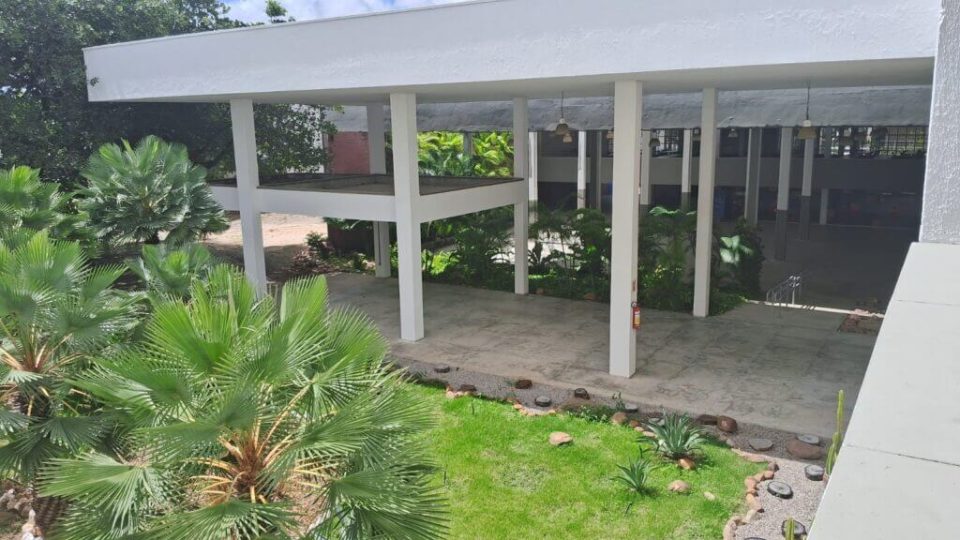
The conference will take place at the Convivence Center of the Universidade Federal do Ceará, located at the Pici Campus. This modern venue offers excellent facilities for scientific events, including spacious conference halls, state-of-the-art audiovisual equipment, and comfortable breakout areas designed to foster networking and collaboration. Its strategic location within the university campus provides easy access to additional amenities, ensuring a productive and inspiring environment for all participants.
Attendees traveling from outside Brazil may need a visa to join LAPDIC 2025. We highly recommend checking visa requirements well ahead of the conference dates, as processing times can differ greatly based on your country of origin.
Steps to Obtain Your Visa:
👉Download Visa Invitation Letter Request Form (DOCX)
For specific questions regarding visa support documents, please contact us at: [email protected].
Note: While we can provide invitation letters and supporting documentation, the final decision on visa issuance rests solely with Brazilian immigration authorities.
For LAPDiC 2025, we are committed to achieving the following: